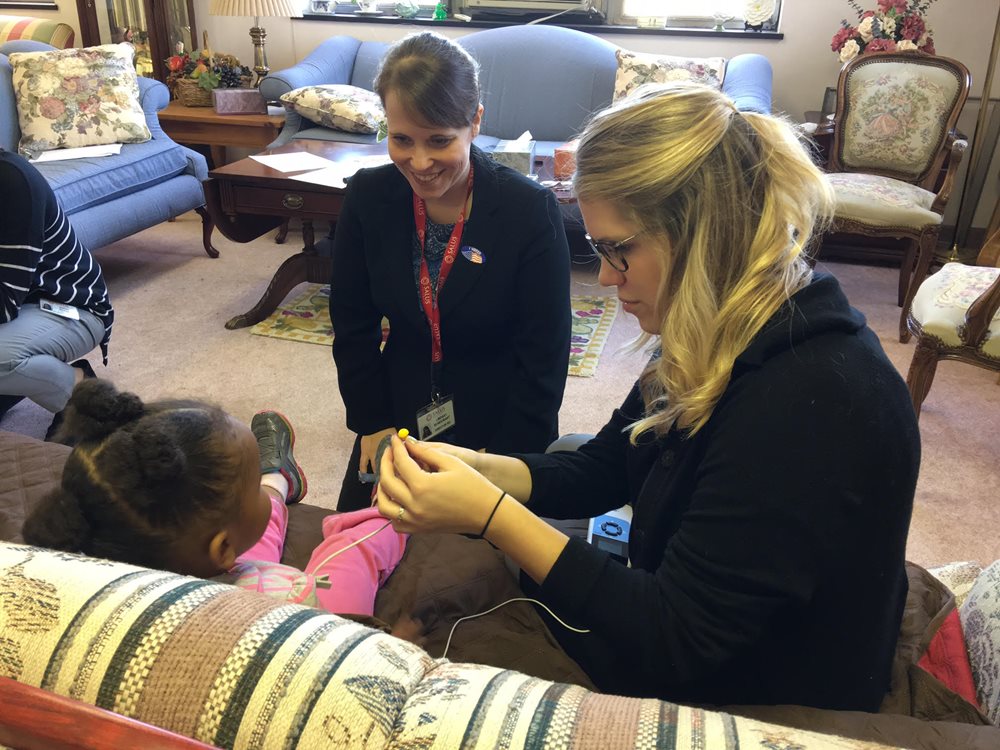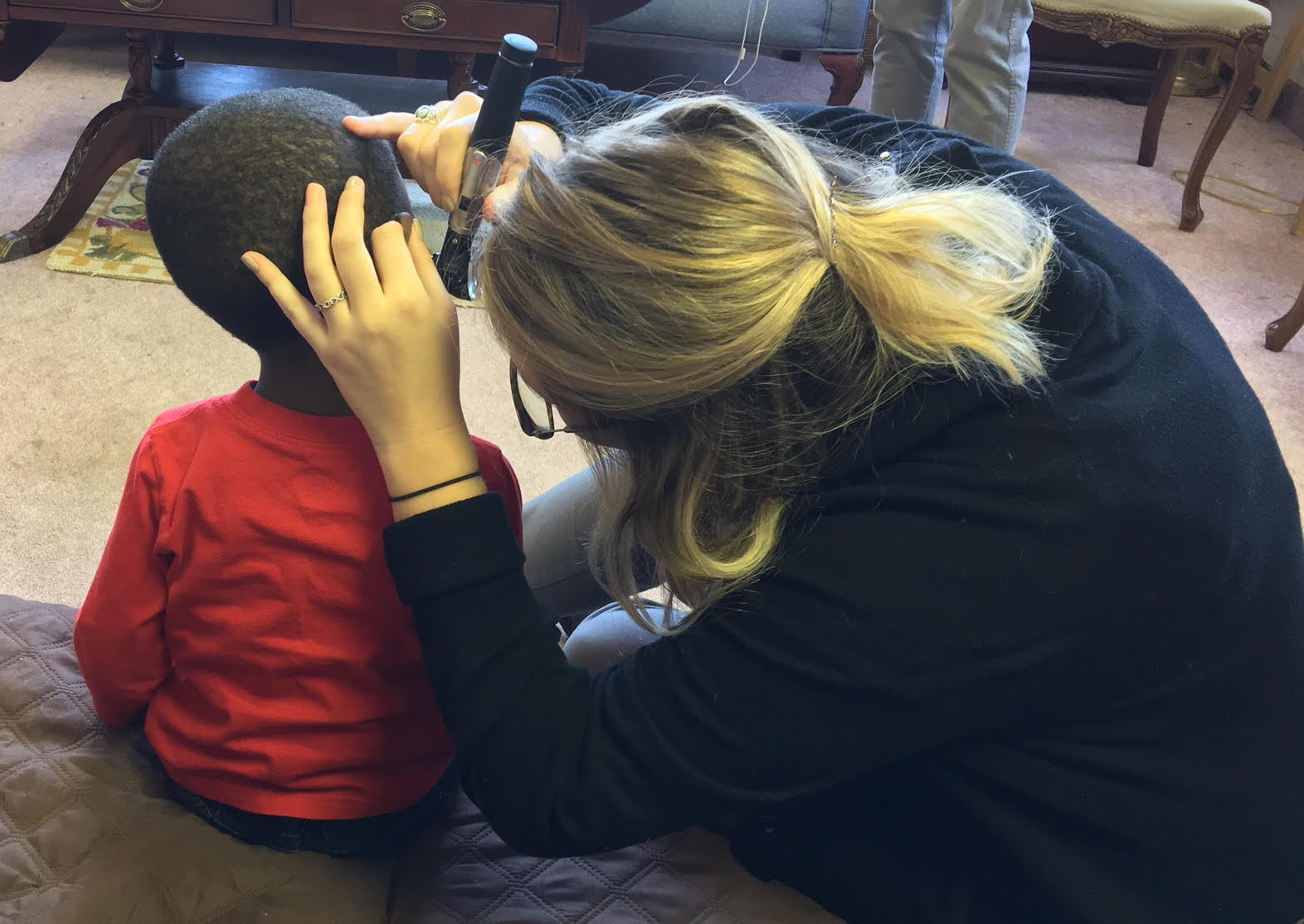School Hearing Screenings Making an Impact
According to the Centers for Disease Control and Prevention (CDC), 15% of school-aged children (6-19) have some degree of hearing loss. An estimated 12.5% of children and adolescents aged six to 19 years have suffered permanent damage to their hearing from excessive exposure to noise.
 Early identification of ear problems and hearing loss is important so children have access to information being presented in the classroom, and for communication with their friends and family. School hearing screenings are a way to identify hearing loss at an early stage.
Early identification of ear problems and hearing loss is important so children have access to information being presented in the classroom, and for communication with their friends and family. School hearing screenings are a way to identify hearing loss at an early stage.
Since 2016, Doctor of Audiology students from Salus University’s Osborne College of Audiology and audiologists from the Pennsylvania Ear Institute (PEI) have participated in school hearing screenings in the School District of Philadelphia and local communities. During the school year, audiology students and audiologists could be seen carrying their audiometers and screening supplies as they headed out to local schools. Screening stations were set up in libraries, classrooms, and school nurses’ offices to ensure a quiet environment.
Dr. Lindsay Bondurant, PEI director and Dr. Jenny Rajan, pediatric audiologist, supervised the students as they performed pediatric hearing screenings. In the 2021-2022 academic year, the teams visited 28 schools and screened 2,500 students. Each child had a brief report written about the results of the screening to let the parent know if additional testing was needed, or if they needed to see their pediatrician about a possible medical problem. Of those screened, approximately 700 were referred for additional testing, some needing complete audiograms, some just needed to be rescreened and at least one child was diagnosed with hearing loss and fitted with a hearing aid.
 Doctor of audiology students not only helped the children, but they also improved their skills while working with the pediatric population. Performing the hearing screenings in a school as opposed to a clinical setting also presented some interesting insights for the students. Concrete walls, open windows, children laughing and talking are all factors that can interfere with children’s ability to hear in the classroom. Students gained a very different perspective on what needs to be done to support children with hearing loss and how important outreach initiatives are for identifying children in need.
Doctor of audiology students not only helped the children, but they also improved their skills while working with the pediatric population. Performing the hearing screenings in a school as opposed to a clinical setting also presented some interesting insights for the students. Concrete walls, open windows, children laughing and talking are all factors that can interfere with children’s ability to hear in the classroom. Students gained a very different perspective on what needs to be done to support children with hearing loss and how important outreach initiatives are for identifying children in need.
Without hearing screenings, recognizing a hearing issue can be challenging for both teachers and parents. Children with hearing difficulties may not realize they have an issue and may be perceived as an unmotivated student or one with poor attention skills.
School hearing screenings are just one of the many ways hearing loss can be identified in a child. Even if the child has struggled with undetected and untreated hearing loss before the PEI team arrives at the school, no issue is to too early or late to address, according to Dr. Bondurant.